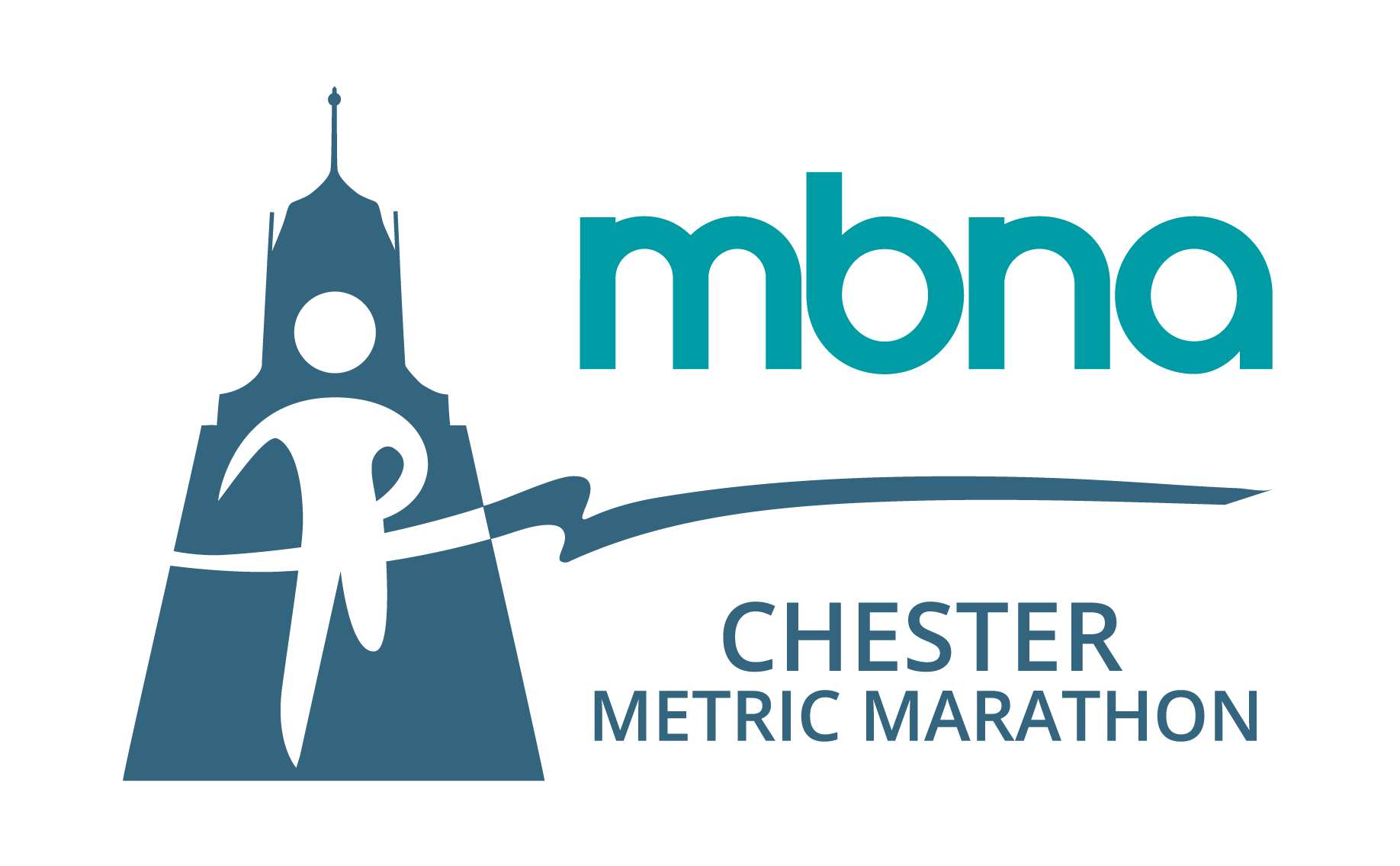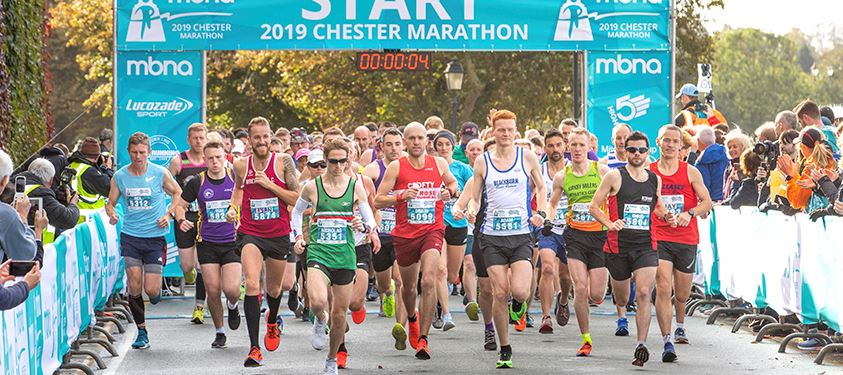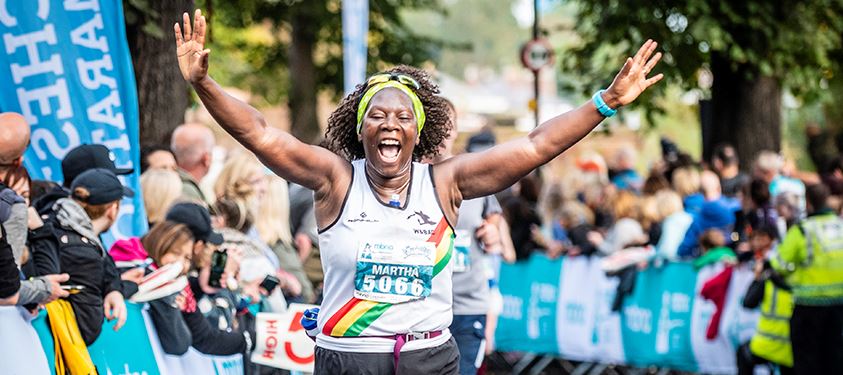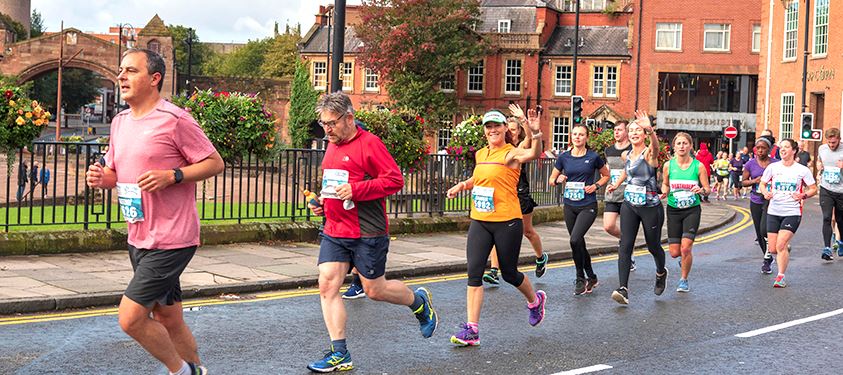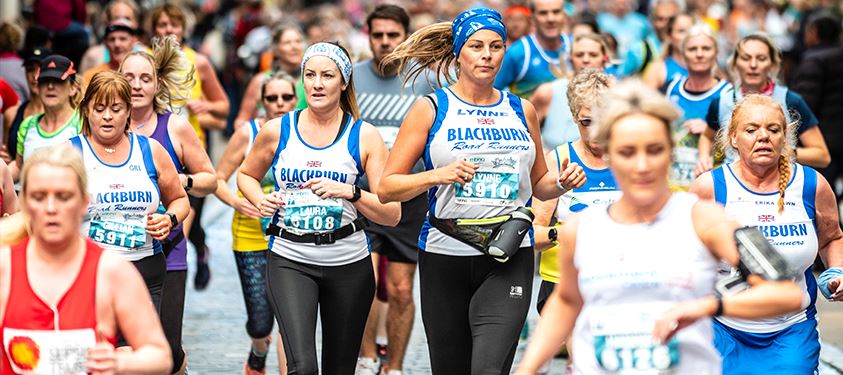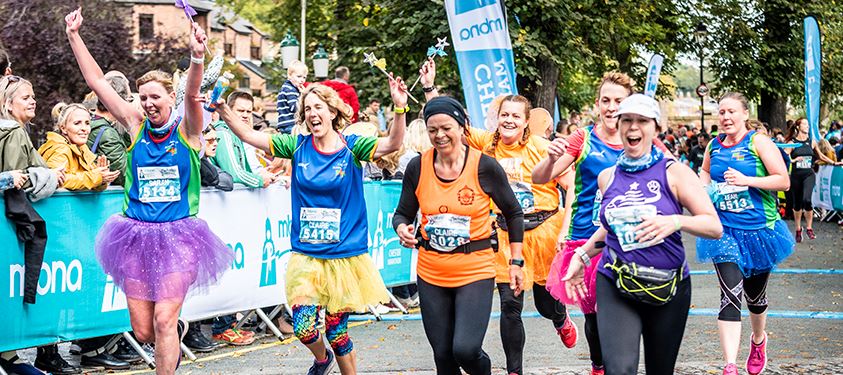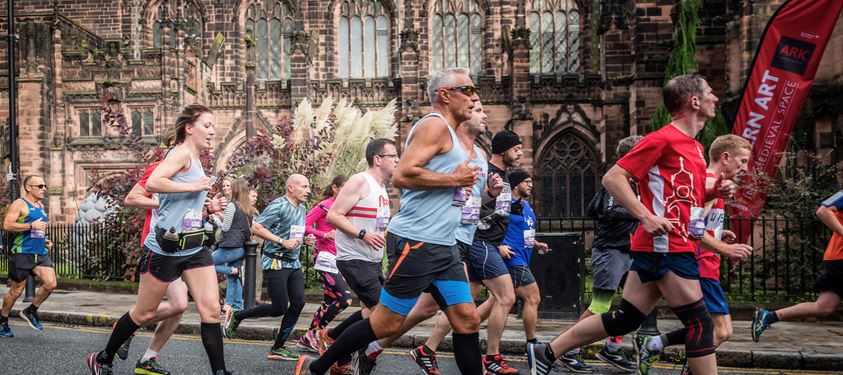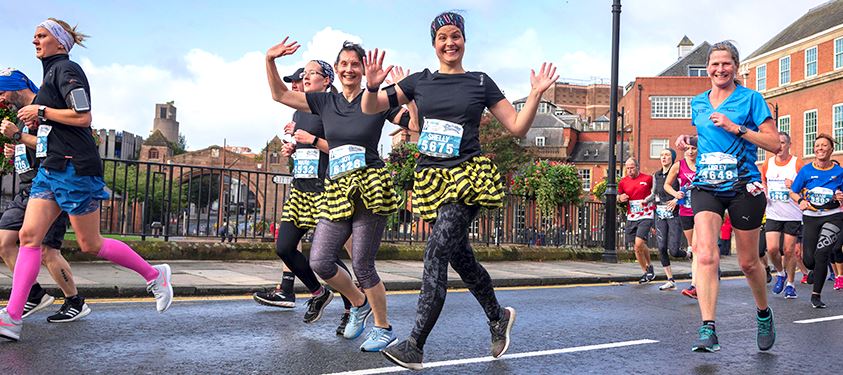Performance Nutrition - Fuelling your long training runs by Danny Webber, Performance Nutritionist at Webber Nutrition.
The weeks before a race are an essential time to practice your fuelling strategies for when it matters most on race day! Knowing what works for you is the key to performing at your best, so make sure you’ve tried and tested a variety of options (e.g. pre-training meals, timings, types of gels). Eating the right things at the right time has a significant impact on your performance, recovery time and also reducing the risk of illness and injury. Your body will already be under a huge amount of stress and inadequate fuelling will only exacerbate this. Here are some considerations for how you should be fuelling your longer training runs.
Before
Eat 2-4 hours before your run to allow your food to digest so you’re not feeling heavy or risk having any gut issues whilst running. Drink a large glass of water with your meal to ensure you’re well hydrated and to aid digestion. Your meal should be comprised of easy to digest carbohydrates that are low in fibre. This can vary from athlete to athlete but a few good options that provide good amounts of carbohydrates with ample amounts of protein include:
- Large bowl of porridge or muesli with skimmed/semi-skimmed milk. Topped with choice of fresh or dried fruit, honey, nuts and seeds.
o E.g. porridge with chia seeds, cinnamon, banana & honey
- 1-2 bagels with jam/honey/marmite or nut butter
- Low fat yoghurt with banana or dried fruit & handful granola
- Poached/scrambled/boiled eggs on toast
- Fruit juices (add a glass with your meal)
If you struggle to stomach food before a race then carbohydrates in liquid form may be more suitable. A smoothie, flavoured milk or a carbohydrate sports drink may be beneficial.
If you’re planning on taking any supplements before your race make sure you try them before your race!! Proven ergogenic aids for running performance include:
- Caffeine (1-4mg per kg body mass); 30-45 mins before
- Beetroot juice or BEET IT shot (400mg nitrate); 1 hr before
- Carbohydrate drink (200-300ml) or 1 gel; 15-45 mins before
During
It is essential that you practice your in-race fuelling during training because your gut needs to be able to tolerate and quickly digest drinks and gels. Not doing this can result in gastrointestinal issues and poor performance. The faster your expected finish time, the more carbohydrate you need, aiming for 30-60g per hour. Elite athletes may even go as high as 90g per hour, but 60g is a recommended target. The average energy gel contains 20-30g carbohydrates and 300ml Lucozade Sport gives 20g, so having 2-3 of these every 20-30 mins will help maintain your running intensity. It’s important to make sure you avoid severe dehydration during training too, especially in hot conditions. Aim to drink ~500-750ml fluids per hour to replace water lost through sweat. Energy drinks and gels contain electrolytes so these already help to replace salts. Caffeinated gels can also help during the run especially towards the end as it promotes cognitive function for improved focus.
Whatever your in-race fuelling strategy is, PRACTICE PRACTICE PRACTICE it during training to find what works for you!!
After
Recovering well after training is essential for your body to repair damaged tissues, promote training adaptations and replenish depleted energy stores. Poor recovery can lead to injury, illness and subsequent poor performance. Hit the 3 R’s of recovery as soon as you can after training.
Repair = Protein
Refuel = Carbohydrate
Rehydrate = Water & Electrolytes
This does not mean you need to have a protein or recovery shake training after a run. Rehydration should start straight away so water or an electrolyte drink here would be fine. Apply a food first approach so if you’re eating a meal within the next 20-30 minutes then that’s perfect, just make sure it’s high in protein, good quality carbohydrates and veg. This could be something like a turkey stir fry with rice or noodles, or scrambled eggs on toast with spinach and smoked salmon.
However if you struggle to eat soon after training or know food isn’t available for at least an hour, then a recovery drink within the first 20 minutes is recommended. Cow’s milk is the best thing to have after training and is scientifically proven to enhance recovery better than any commercialised recovery drink. A pint of milk provides 20g protein, 20g carbohydrates as well as natural salts and electrolytes. Minimal difference between skimmed, semi-skimmed and whole milk, just the fat content varies, so your choice. If you need extra carbohydrates then you can add some fruit to make a smoothie.
Take home messages
- Practice what you eat before and during training to find what works for you and to maximise its effectiveness on race day.
- Pre-training meal should be high in carbohydrate and eaten 2-4 hours before training
- Caffeine and nitrates (beetroot) are effective pre-training supplements to consider
- Aim for 60g carbohydrates per hour (less for slower athletes) during training from combination of carbohydrate drinks and gels.
- Maintain hydration by drinking little and often, more needed in hot conditions.
- Achieve the 3 R’s to maximise recovery after training.
For more help, advice & information about performance, nutrition & more, go to www.webber-nutrition.co.uk & make sure you follow Webber Nutrition on Social media @WebberNutrition on all platforms.

Never miss our training runs or special offers!
Course Record
Men
1:26:58
Charlie Hulson in 2018
Women
1:41:55
Tracy Rogers in 2024
2024 Results
Men
| 1st | Michael Young (West Cheshire Athletic Club) | 1:29:36 |
| 2nd | Ricky Challinor (Buckley RC) | 1:32:16 |
| 3rd | Sam Stratford (HI Runners) | 1:35:03 |
Women
| 1st | Tracy Rogers (Buckley RC) | 1:41:55 |
| 2nd | Keely Smith (West Cheshire Athletic Club) | 1:48:17 |
| 3rd | Louise Collins (Halesowen ACC) | 1:49:12 |
Volunteer
As with all such events, our events would not be possible without the help of a huge team of volunteers.
Find out more.